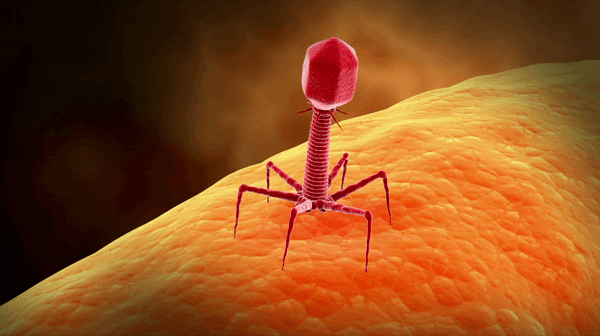
It raises C-reactive protein, a key marker for inflammation
—-Important Message From Our Sponsor—-
Is this the deadliest virus on Earth — even deadlier than Corona?

This little monster is a virus…
…the deadliest entity on the planet…
But what if I told you that it holds the key to giving men the health and performance they remember 20 or 30 years ago?
———-
Eating this makes heart attack and stroke more likely
The ketogenic diet has become very popular over the last 10 years.
This diet involves eating very low carbohydrates, moderate protein, and high fat.
Proponents of the keto-diet claim that it helps people lose fat, lower inflammation, and fight chronic disease.
Recently, scientists put some of these claims to the test in a human trial.
The most telling result of the trial was an increase in C-reactive protein on the ketogenic diet.
C-reactive protein is an inflammatory marker which is raised in cardiovascular disease, chronic heart failure, and cancer.

The human trial was carried out by researchers at Columbia University Irving Medical Center, New York, USA. The results were published in the journal Obesity.
The study was designed to see the effect of two different diets on metabolism and inflammation.
The first diet consisted of 15% protein, 50% carbs, and 35% fat.
The second diet consisted of 15% protein, 5% carbohydrate, and 80% fat.
This was the ketogenic diet.
“Little is known about the effects of transitioning people from a high-carbohydrate diet to a ketogenic diet.”
There are many research papers on the ketogenic diet. But most of them are very low quality.
“To understand the metabolic effects of a ketogenic diet, an inpatient controlled feeding study is required.”
Many of the people considering a ketogenic diet are overweight or obese.
And this study recruited 17 men who were overweight or obese according to their body mass index.
“17 men without diabetes and with a BMI between 25 and 35 were inpatients at 4 study sites.”
The research was done in a medical facility. The participants were provided their food by the researchers, they had no other access to food.
“The participants resided on metabolic wards without access to food other than that provided within this study.”
This is the only way to properly control food and calories in a study.
It is the gold-standard and rarely performed because of the high cost.
The participants were assigned to the normal diet for four weeks.
Then they switched over to the high-fat, ketogenic diet for another four weeks.
The researchers calculated the amount of energy used by each participant.
The caloric intake was adjusted so that they were getting just as many calories as they were using on both diets.
The participants’ food was carefully prepared and analyzed by specialists.
“Food was prepared in the Pennington Biomedical Research Center metabolic kitchen, frozen, and shipped to the study sites, where meals were prepared for consumption.”
Towards the end of each dietary experiment the researchers put the participants through detailed tests looking at changes in metabolism and inflammation.
“Glucose homeostasis, lipid homeostasis, and inflammation were studied in the 17 men.”
The study found a significant increase in C-reactive protein after three and four weeks of the ketogenic diet.
“C-reactive protein was significantly increased on the ketogenic diet.”
C-reactive protein is a general marker of inflammation.
It’s also one of the best indicators of risk of chronic disease.
High levels of C-reactive protein increase the risk of diabetes, high blood pressure, and cardiovascular disease.
Animal experiments have shown that lowering C-reactive protein can accelerate recovery from heart attack and stroke.
Colon cancer, obstructive sleep apnea, and rheumatoid arthritis are other common diseases when C-reactive protein is elevated.
The significant increase in inflammation caused by the high-fat, ketogenic diet should be a serious cause for concern.
Some of the other results of the study also showed a bad light on the ketogenic diet.
This ketogenic diet is promoted as a therapy for diabetes.
The researchers tested blood sugar and insulin after meals.
Blood sugar was higher during the ketogenic trial than when people were eating the normal diet.
“During the ketogenic diet, the glucose area under the curve was significantly higher with test meals.”
This was true with a ketogenic test meal. It was also true when the researchers tested a normal meal with some carbohydrates.
Insulin was higher during the ketogenic diet when the participants were tested with a meal that included carbohydrates.
“The insulin area under the curve was significantly higher for the control meal in the ketogenic trial.”
Ketogenic diets increase inflammation and may make blood sugar and insulin problems worse.
“Switching to the ketogenic diet was associated with increased inflammation. Glucose homeostasis parameters were diet and test meal dependent.”
You should consult a healthcare practitioner about treating and diagnosing health-related problems.
—-Important Message About Carbs and Sugar—-
Avoid keto and low carb diets! Men who eat sugar, burn sugar — and this is FANTASTIC for male health and performance

Remember being a kid and being warm and full of energy all the time?
You’d go outside to play in the cold and Mom would be calling after you, “Don’t forget your jacket!”
But you wouldn’t even feel cold, you’d be burning up out there.
And it’s because as kids, our bodies are always burning SUGAR.
YOUTH is sugar burning. Even scientists agree.
But as we age, our metabolisms get slow and cold, and instead of burning sugar for energy, the body starts burning fat…
And burning fat is BAD.
This is what happens to a man when he burns only fat and not sugar:
Diabetes, low testosterone, erections problems, obesity, more age-related diseases, even cancer…
So a hot, fast, sugar-burning metabolism is the key to remaining young and healthy no matter how old you are.
———-

Glucose and Lipid Homeostasis and Inflammation in Humans Following an Isocaloric Ketogenic Diet.
